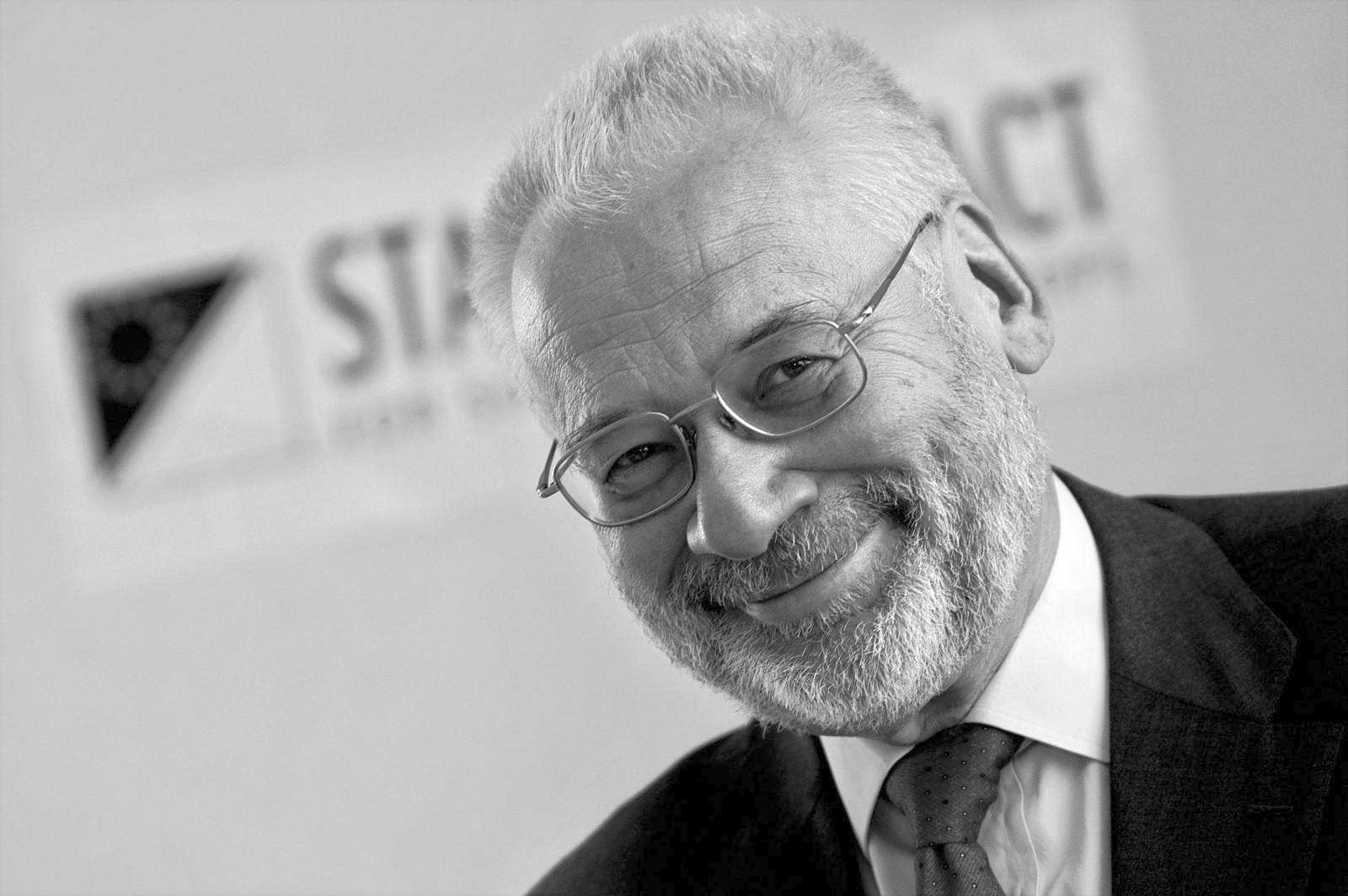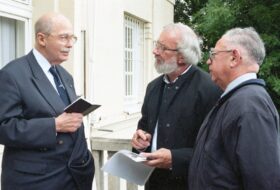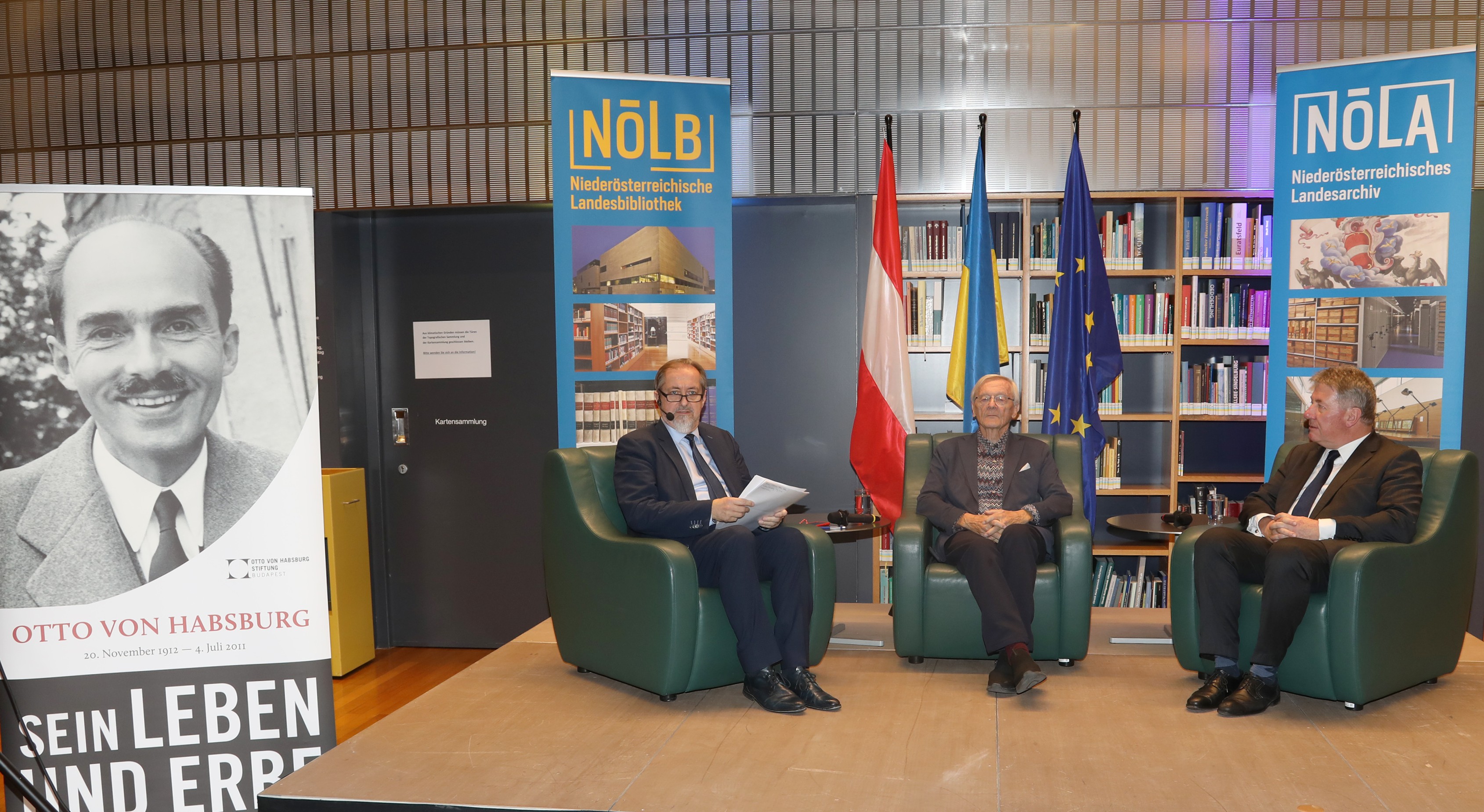Erhard Busek was born in Vienna on 25 March 1941. The title of former Austrian Chancellor Wolfgang Schüssel’s laudatory speech given on the 80th birthday of Busek, says a lot about the politician: A colourful bird remains colourful even in old age (Schüssel über Busek: Ein bunter Vogel bleibt auch im Alter bunt | Die FURCHE). It can hardly be said that the veteran politicians were ever close friends. Socialised in Grand coalition negotiations, Busek could never forgive Schüssel for entering into coalition with the Freedom Party of Austria (FPÖ) in 2000. In one of his last interviews before his death, he criticised Schüssel’s membership of the supervisory board of the Russian oil company Lukoil – a position the former Chancellor has since resigned from. Schüssel, however, in the above-quoted article, while subtly referring to their public clashes, highlights Busek’s inventiveness, which made him stand out even early in his career from the authoritarian, perhaps somewhat stale Austrian conservative world. In fact, it is this creativity that has given Hungarian political life, and especially those who shaped it during the period of regime change, much to thank him for.
Nowadays we might call it a political product, whereas in the mid-eighties the concept of “Mitteleuropa” was more of a political invention, born out of personal motivations. For Busek, who has been Deputy Mayor of Vienna since 1978, it was not just a definition of a place, but also a demarcation of the political space in Austria – and remained so for the rest of his life. Erhard Busek and Emil Brix, multiple ambassador and director of the Diplomatic Academy of Vienna, published a book in 2018, which is now also available in Hungarian: Közép-Európa újragondolása: Miért Közép-Európában dől el Európa jövője? (Central Europe Revisited: Why Europe’s Future Will Be Decided in the Region). “Revisited”– write the Austrian authors, which in their case is meant in a very personal way. They were the first to articulate from an Austrian perspective in 1986, under the title Projekt Mitteleuropa, what they thought about the past and present of the region and what opportunities they saw after the possible dismantling of the Iron Curtain. It is worth remembering the feeling of life in Central Europe at that time, the intellectual attitude that brought together Hungarian, Slovak, Czech and Polish intellectuals, sometimes joined by their Croatian, Slovenian, Austrian and even Italian contemporaries – spanning national borders, political systems and even political differences within countries.
In our country, perhaps the most important forum for this Central European co-thinking was the journal Európai Utas, edited by Péter Módos. Busek and Brix visited us several times at that time, and their Hungarian voice was usually Márton Módos, then a student of German studies at university, now the owner-editor-in-chief of Inforádió. We all knew that Mitteleuropa was not just about cultural belonging. In Hungary before the fall of communism, the fact that Central Europe, which seemed to have been lost forever, could regain its civil rights, brought new dimensions of strategic-political thinking to those who lived on this side of the Iron Curtain too. We were filled with optimism by the fact that we could count Austria, which at that time was also only aspiring to join the European Union, on our side.
Let’s not forget that in 1988, Péter Bokor made his film By the Will of God about Otto von Habsburg, which became the most watched film in Hungary at the time. Otto had visited Hungary as a private citizen as early as August 1987, and his popularity grew following the release of the film. Through him nostalgia for the Austro-Hungarian Monarchy has grown, creating a kind of positive historical precedent for the revived ideal of Central Europe. It was not that simple in Austria – as it still is not today. In the Republic of Austria, the relationship with the imperial house and the political establishment associated with it is controversial, especially for a leading politician. Busek’s personal afterword to the 1986 book is not coincidentally a bit vague: “It took a lot of conversation for me to recognise it: Mitteleuropa is not a general political heal-all, but a principle that citizens can experience in their everyday lives, and that is not a new empire, but the future itself.”
H 76 B (p-z) Erhard Busek
Our Foundation’s archives preserve some of the correspondence between Otto von Habsburg and Erhard Busek. The majority of these do not go beyond the level of current invitations, greetings and congratulations. One of the most notable of these is a request on paper, dated 15 December 1988, in which the Deputy Mayor of Vienna draws Otto’s attention to the importance of the Vienna-Budapest World Exhibition planned for 1995 and asks him to contribute to a book on the large-scale project as an east-west bridge. Busek highlights the world political significance of the case, which Otto is pleased to welcome in his objective reply of 5 January 1989.
It is well known that nothing came of the joint world exhibition, however in the months following the exchange of letters, many events of global political significance occurred. The spirit of Central European cooperation – as Busek and Brix’s “revisited” book demonstrates – has not disappeared, even if it has been much transformed. Erhard Busek – with whom it was not always easy to agree – has done much to preserve these forums for regional dialogue.
May God rest his soul!
Gergely Prőhle


